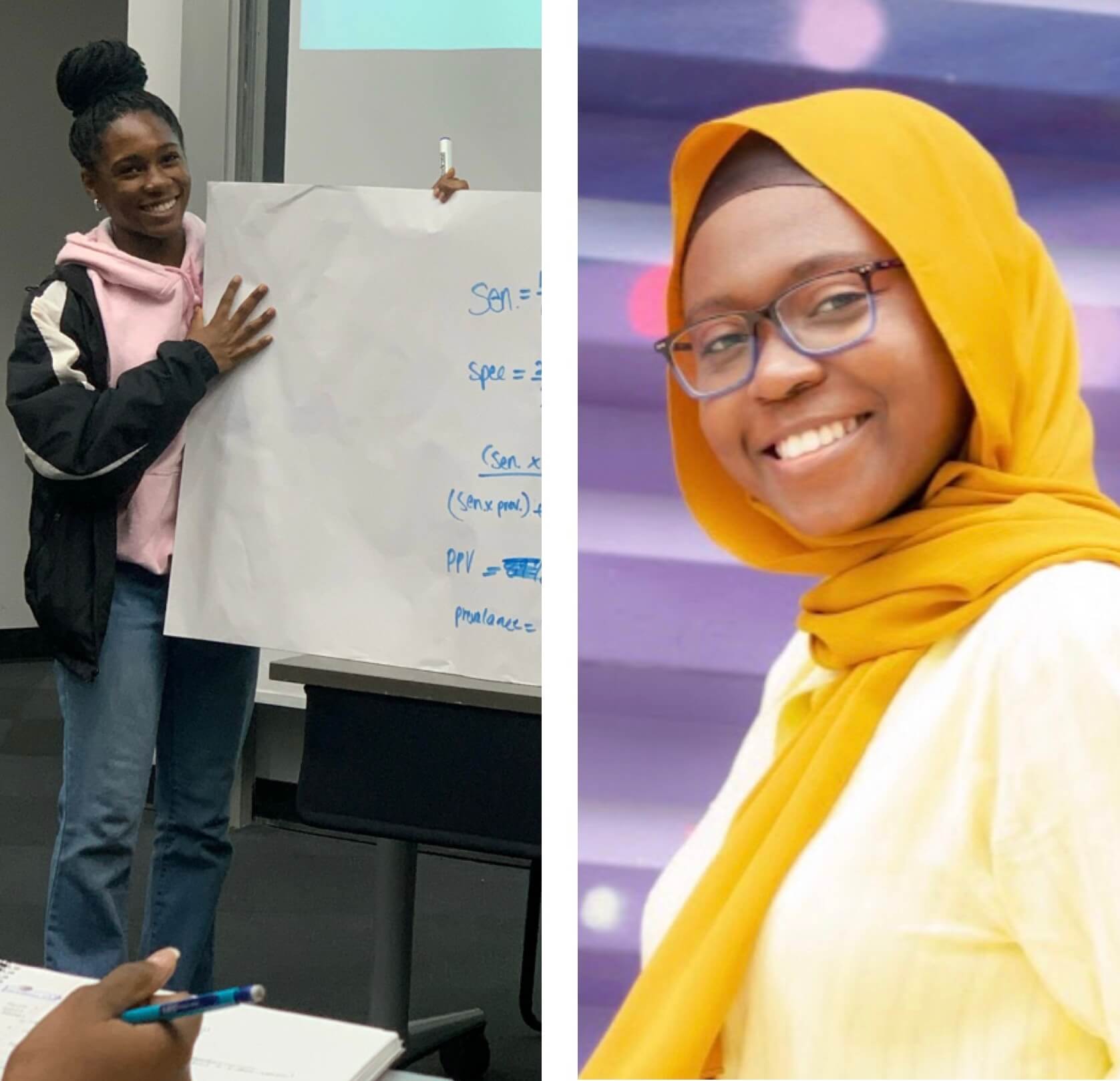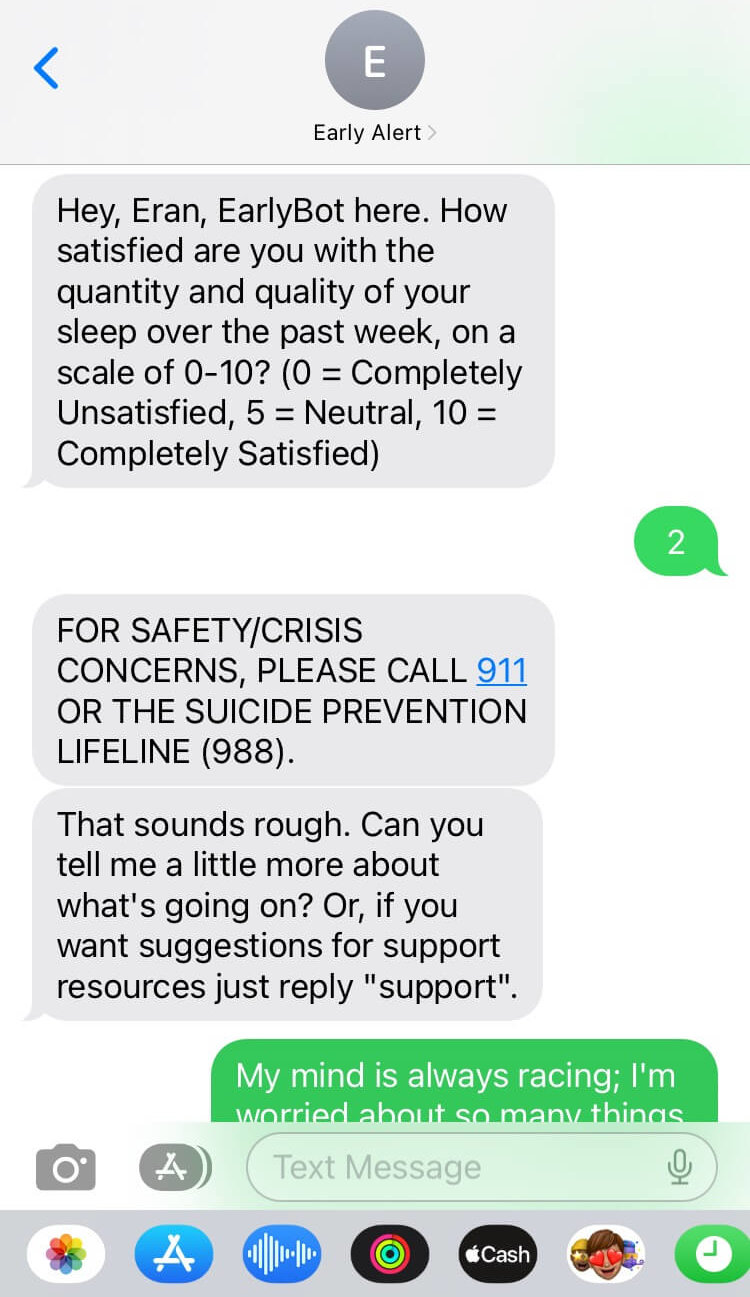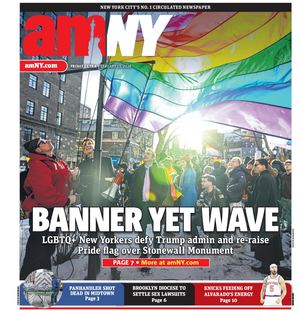In a world with bizarre and controversial bots (here’s looking at you, ChatGPT), there’s one bot working around the clock to support mental health. Its name is EarlyBot, and its main goal is to check in on your wellbeing and flag any serious red flags to human crisis responders.
Zakkiyya Fraser, a biomedical science major and psychology minor at the CUNY School of Medicine, heard about Early Alert, the program EarlyBot belongs to, from her school’s administration. She signed up without giving it much thought, but was pleasantly surprised by it a week later.
“The first question I ever got was, ‘How satisfied are you with your life over the past week on a scale of zero to 10?'” Fraser said. “Which was so shocking. It definitely jumped right in.”
Fraser wasn’t expecting that EarlyBot “kind of resembles a person” and thought she would instead receive texts that resembled retail marketing messages. But as jarring as that first question was, Fraser, who is currently on year one of her seven-year medical school journey, said it prompted her to take a moment to reflect on her wellbeing.
EarlyBot sends Fraser two quick check-in text messages a week.
Fraser is one of dozens of students at the CUNY School of Medicine to sign up for the text-messaging service. Students at the CUNY School of Medicine are the first in New York, and one of 34 higher education institutions, to opt in to the Early Alert program. Early Alert, overseen by the school’s office of Wellness and Student Life, is another free and confidential tool to help medical students combat mental health issues and suicide ideation. Medical students are three times likelier to die of suicide than other students, according to the American Medical Association.
The CUNY School of Medicine is a highly-competitive program with a 4% acceptance rate, matching that of Columbia University, its Ivy League neighbor in West Harlem. The majority of its students are from marginalized communities, and more than 80% of students are immigrants or children of immigrants.
Fraser, who is from Brooklyn’s East New York, said once her classes started, the second question seemed to arrive right on time shortly after: “How confident do you feel about your ability to be successful academically, on a scale of zero to 10?”
“It might ask you, ‘How would you rate your concentration this past week?'” Fraser said. “And one being the worst, 10 being best. And then based off of your answer, it responds with a follow-up message that says, ‘Oh, that’s great. I’m glad to hear that’ or ‘that sounds okay.’ And then they’ll give you inspirational quotes or resources to help you get to that point that you need to be.”
Fraser said if she rated her memory and concentration on the lower end of the scale one week, she said she’ll see the same question the next week. It felt like EarlyBot was checking in on her to see if that area was improving.
Victor Schwartz, the Senior Associate Dean for Wellness and Student Life at CUNY School of Medicine, met Eran Magen, the founder of Early Alert, through his work in mental health services at the University of Pennsylvania, where Magen worked in the Department of Counseling and Psychological Services as the research director. For eight years, he served as chief medical officer of The Jed Foundation, a nonprofit focused on youth and young adult suicide prevention and mental health promotion. Now in a unique place to advocate for student mental health, Schwartz introduced Early Alert to students in January.
“One of the challenges of wellness programming is you have a student body that’s spread all over the place,” Schwartz said. “Using text-based and social media-based platforms becomes a way of being able to connect to the whole student body quickly.”

Temilolu Adeola, a second-year biomedical student at the CUNY School of Medicine, recently signed up for Early Alert and was pleasantly surprised at receiving a Confucious quote.
“It had personal touch to it as if a person sent me the message as opposed to simply a robot,” Adeola said. “I like the fact that it doesn’t bombard or overwhelm you with questions. I highly appreciated the quote that it sent me: ‘The man who moves a mountain begins carrying away small stones.'”
The Long Island native is studying to become a doctor and plans on staying in New York for her medical residency. She said she signed up for Early Alert at an important time: transitioning from a single course in the winter to a full course schedule and a new part-time job.
The past two weeks, I’ve been a little down,” Adeola said. “I just felt a little overwhelmed. But I’m getting back to myself. I’m getting my motivation back.”
While she knows that her studies are always going to be intense, she said what’s important is “how you cope with it.” Adeola copes by talking to her peers after class and doing homework together, attending community events, and practicing her faith through Sunday church and bible reading.
Magen, the founder of Early Alert, said “really alarming and tragic rates of suicide among medical students” became very clear over the past decade.
So Magen set out to develop a system and messaging meant to feel well-informed, well-meaning, and conversational. Contracted with multiple 988 crisis centers around the nation, Early Alert’s philosophy skips in-depth and infrequent assessments and relies instead on “very frequent light touches.”
“We just want to see the fine, hairline cracks when they appear,” Magen said. “We don’t need to go super deep. If there’s a problem in someone’s life, it will manifest everywhere: sleep, academics, friendships, your mood. Once we identify, we connect people to resources that can help. If someone reports poor sleep, we can connect them to student health centers. We’re not trying to know everything about a person’s life, just something we can help with.”

“On campus, whether it’s academic advising to chaplaincy services to the counseling office, those will crop up depending on how students rate themselves in that area,” Schwartz said. “If somebody rates themselves at the emergency end of the spectrum, they will be connected to the national 998 crisis line.”
Early Alert will also send an email to the school so the school can reach out to the student who’s in crisis, Schwartz said.
The pandemic exposed existing gaps in hospital systems, as well as mental health support and care. Fraser said she has taken steps to continue to work on her mental health: talking to professionals, painting, and hanging out with her friends outside of school.
Both Fraser and Adeola give their school credit where it’s due: CUNY School of Medicine does offer plenty of resources and in-person support.
EarlyBot is just different in that wherever the students go, EarlyBot goes, too.






































